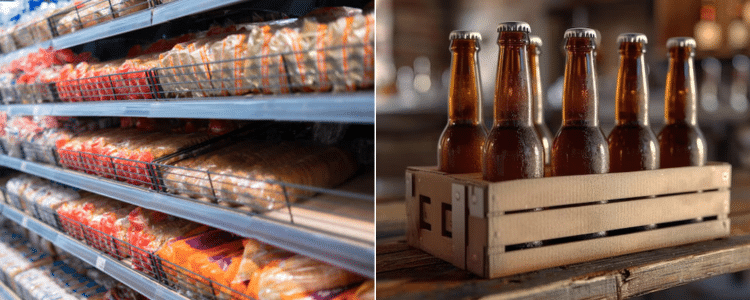Kenyans will have to dig deeper into their pockets when acquiring bread if a proposal on the VAT tax in the Finance Bill 2024 sails through.
Beer lovers on the other hand will have a sigh of relief while acquiring their preferred drinks if proposals contained in the Bill go through parliament.
The Finance Bill 2024 proposed by Treasury Cabinet Secretary Njuguna Ndung’u contains tax proposals which the government is banking on to increase revenue collection.
According to the draft bill released on Saturday May 11, 2024, the National Treasury proposes 16 per cent VAT on both unleavened and leavened bread which had earlier been exempted from taxation.

If the bill is approved, bread will attract VAT at the proposed rate, with the price of the common 400 grams loaf set to rise by at least Ksh10.
Also Read: Finance Bill: Mpesa and Bank Charges Set to Increase in New Proposal
The National Treasury had exempted bread from the list of VAT products back in the 2021/2022 Budget during the tenure of former Cabinet Secretary Ukur Yattani.
VAT Tax on bread in Finance Bill 2024
Applying the VAT on the prevailing retail prices of bread will result in an expected rise with a margin of between Ksh9 and Ksh21 for premium brands. This means that new retail prices of bread could be between Ksh65 and Ksh150.
At the same time, the Finance Bill 2024 proposes to cut excise duty on a 500ml bottle of beer with 4.2 per cent alcohol content from Ksh71.22 to Ksh47.25.
For wines- including fortified wines, and other alcoholic beverages obtained by fermentation of fruits, the bill proposes a change of Ksh229 per litre to 25 per centiliter of pure alcohol with a proposed effective date of 1 September 2024.
For Vodka and Whisky, prices are expected to rise as the Treasury has proposed to increase excise duty on a liter of spirits.
Payment Timeline of Excise Duties for Alcoholic Beverages
On the other hand, the bill has proposed the extension of timeline for payment of excise duty by licensed manufacturers of alcoholic beverages.
It proposes to extend the timeline for payment of excise duty by licensed manufacturers of alcoholic beverages to five (5) working days upon removal of goods from the stockroom, a change from current period of twenty-four (24) hours upon removal of the goods from the stockroom.
“Section 36 of the Excise Duty Act is amended in subsection (1A), by deleting the words “twenty-four hours” and substituting therefore the words “five working days,” reads part of the draft bill.
For Cigarettes, the draft bill proposes an increased excise duty of Cigarette with filters (hinge lid and soft cap) from Ksh3,825.99 per mille to Ksh4,100 per mille.
Cigarettes without filters (plain cigarettes), on the other hand, have been proposed to be affected with an excessive duty of Ksh4,100 per mille up from Ksh 2,752.97 per mille.
In addition, the Bill proposes to introduce an excise duty of fifteen percent (15%) on fees charged for internet and social media advertisements relating to alcoholic beverages.
This also applies to betting, gaming, lotteries, and prize competition advertisements.
CS Ndung’u on Bread and Milk
Treasury CS Njuguna Ndung’u while recommending reforms that need to be implemented by the country in taxation to ensure tenfold returns had hinted on the introduction of VAT tax on bread.
The CS was speaking back in March when he indicated that high taxation also prompted tax refunds to companies considered to sell products that are consumed by the poor.
CS Ndung’u said that among the best moves the country would make was to have personalized tax returns instead of companies.
“We can decide that we are not going to have tax refunds, we can have personalized tax refunds. When you buy things in the supermarket, we refund you directly after you produce your receipt and not the companies,” Ndung’u said.
At the time, Ndung’u said that despite the assumption that they benefit the poor, bread and milk are by large a middle-class meal.
According to the CS, the total VAT collected in Kenya comprises of about 40 percent of the total tax, with 18 percent of it going to tax refunds on items that are considered to be consumed by the poor.
He pointed out that 95 percent of the refunds go to bread and milk while highlighting that it’s the middle class who frequent supermarkets to buy the products.
“So, we were not compensating the poor, we were compensating the middle class,’ he explained.
Follow our WhatsApp Channel for real-time news updates:
https://whatsapp.com/channel/0029VaB3k54HltYFiQ1f2i2C











































































